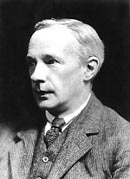 In the “nuts and bolts” series, I explain and discuss some of the fundamental ideas in philosophy (and theology sometimes) that are taken for granted within the discipline, but which might not be very well known to ordinary human beings. This time the subject is ethical intuitionism (or moral intuitionism).
In the “nuts and bolts” series, I explain and discuss some of the fundamental ideas in philosophy (and theology sometimes) that are taken for granted within the discipline, but which might not be very well known to ordinary human beings. This time the subject is ethical intuitionism (or moral intuitionism).
Firstly, and this cannot be emphasised strongly enough, moral intuitionism is not and has never been a theory about how moral facts are grounded. It is not a meta-ethical theory and it is not an ethical theory. It does not try to explain what makes anything right or wrong, nor does it try to tell us which particular actions are right and which are wrong. If you ever hear someone say “so your intuitions tell you that it’s wrong. That doesn’t make it wrong!” then you have my permission to do something unpleasant to them. Moral intuitionism is not meant to be about what makes things wrong – or right.
So if it’s not a theory of morality, what is it? Moral intuitionism is a moral epistemology. It is no more and no less than a theory about how we can come to know certain things, in this case certain moral facts. We can know them, according to this theory, by intuiting them, by experiencing the intuition that they are true.
